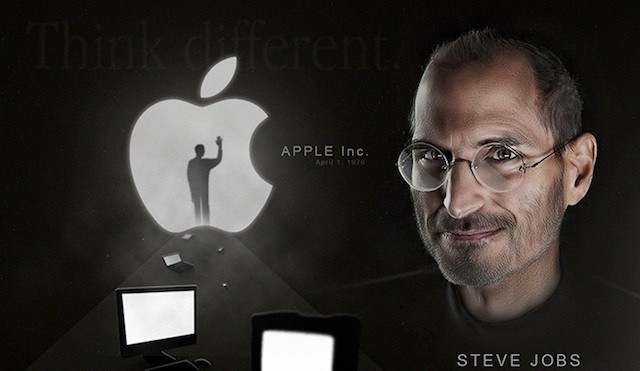Steve Jobs’ career is usually discussed in two major segments – his early years when he co-founded Apple with Woz, and then the latter end of his life when he returned to Apple and resurrected the company with one hit product after another. But 11 years passed between the time that Steve was kicked out of Apple and the time he returned to save the company. Many people call those his “Wilderness Years” as he struggled to cope with getting kicked out of Apple.
What many view as a dark period of exile, Brent Schlender claims it was actually one of the happiest periods in Jobs’ life. Writing a new article for Fast Company about Steve Jobs time in exile, Schlender rediscovered his trove of lost interview tapes he recorded with Jobs during those “Wilderness Years.”
The entire article is riddled with new Steve Jobs quotes and ideas that haven’t been heard before, but here are the eight best:
Steve had some revolutionary ideas about NeXT becoming a model “Open Corporation”:
“Think of it this way, if you look at your own body, your cells are specialized, but every single one of them has the master plan for the whole body. We think our company will be the best possible company if every single person working here understands the whole master plan and can use that as a yardstick to make decisions against. We think a lot of little and medium and big decisions will be made better if all our people know that.”
Jobs compared Sculley to the Wicked Witch of the West only twenty times less hip:
Sculley had “poisoned” the culture of the place. As the years went by, and Apple’s fortunes dimmed, Jobs’s attacks became more pointed: “Right now it’s like the wicked witch in The Wizard of Oz: ‘I’m melting. I’m melting,’ The jig is up. They can’t seem to come out with a great computer to save their lives. They need to spend big on industrial design, reintroduce the hipness factor. But no, they hire Gil Amelio as CEO. It’s as if Nike hired the guy that ran Kinney shoes.”
Rather than sending his assistant to buy presents for his wife and kids, Jobs liked to go buy them himself:
I bumped into him on one of his walks…and wound up joining him as he shopped for a new bicycle for Laurene’s upcoming birthday. This was before you could do your homework on the Internet, but he had done his research, so there wasn’t much shopping involved. We were in and out of Palo Alto Bicycles in 10 minutes. “I’d never have Andrea do something like this,” he said, referring to his longtime administrative assistant. “I like buying presents for my family myself.”
IBM knew nothing about their industry:
“The people at the top of IBM knew nothing about computers. Nothing. Nothing. The people at the top of Disney,” on the other hand, “know a lot about what a really good film is and what is not.”
Jobs could have moonlighted as a marriage counselor:
One way to drive fear out of a relationship is to realize that your partner’s values are the same as yours, that what you care about is exactly what they care about. In my opinion, that drives fear out and makes for a great partnership, whether it’s a corporate partnership or a marriage.”
Companies should be careful with their incentive structures:
“Incentive structures work. So you have to be very careful of what you incent people to do, because various incentive structures create all sorts of consequences that you can’t anticipate. Everybody at Pixar is incented to build the company: whether they’re working on the film; whether they’re working on a potential direct-to-video product; whether they’re working on a CD-ROM. Whatever their combination of creative and technical talent may be, we want them incented to make the whole company successful.”
Dude was so crazy into details, even when brick walls were built for Pixar’s headquarters:
The custom-made bricks came in 12 shades, and if the colors weren’t distributed evenly enough, Jobs would have the bricklayers pull them down and do it again. He would visit the construction site as often as he could as it came together, often clambering around the buildings at night, when no one but the security guards were around.
Jobs probably enlisted Walter Isaacson to write his biography because he understood that people remember great stories more than they remember a great product:
“The technology we’ve been laboring on over the past 20 years becomes part of the sedimentary layer. But when Snow White was re-released [on DVD, in 2001], we were one of the 28 million families that went out and bought a copy of it. This was a film that is 60 years old, and my son was watching it and loving it. I don’t think anybody’s going to be beating on a Macintosh 60 years from now.”
Brent Schlender’s article on Steve Jobs will appear in the May 2012 edition of FastCo, but you can read it now over at Fast Company.


